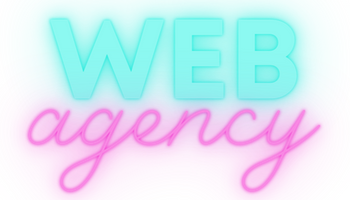WordPress is the CMS most widely used in the world, powering more than a third of all websites. Whether you’re a novice blogger or a seasoned developer, WordPress offers great flexibility and a variety of features to suit your needs. In this article, we’ll explore everything you need to know about WordPress, from its history and how it works to its benefits and how to use it. Whether you’re looking to create a blog, a corporate website or an online store, this comprehensive guide to WordPress will help you get the most out of this powerful and popular CMS.
What is WordPress and how does it work?
WordPress is a popular open source content management system (CMS). It enables its users to create and manage websites, blogs, forums, online stores and much more. It runs on a MySQL database and PHP programming language. WordPress uses a theme and plugin system. This allows users to customize their site and add extra functionality using ready-to-use code. Users can create and edit content using the WYSIWYG (What You See Is What You Get) text editor. This makes it easy to add text, images, videos and much more. WordPress is also known for its large community of users and developers, who share tips, advice and updates to improve the user experience.
What are the basic WordPress features?
WordPress offers a wide range of basic features to help users create and manage a website, including:
Page and article management
Users can easily create and publish pages and posts with WordPress’s WYSIWYG text editor.
Media management
Users can upload and manage images, videos, audio files and other media types from their media library.
Customization
WordPress offers great flexibility in terms of customizing your site’s appearance. Users can choose from hundreds of free and premium themes to customize their site’s appearance.
User management
Users can manage the roles and permissions of users on their site.
Social network integration
WordPress lets users integrate their social network accounts to increase the visibility of their site.
Search engine optimization
WordPress is designed to be optimized for search engines, offering features such as customizable permalinks and title and meta description tags.
Security
WordPress offers several security features to protect your site from hacker attacks, such as regular software and plugin updates, the use of strong passwords and the ability to limit login attempts.
What are the advantages of using WordPress?
There are several advantages to using WordPress to create and manage a website:
.
Ease of use
WordPress is easy to use and get to grips with, even for beginners. Most basic functions are intuitive and easy to understand.
Flexibility
WordPress offers great flexibility in terms of customization and the addition of extra features thanks to themes and plugins.
Active community
WordPress has a large community of users and developers who share tips, advice and updates to improve users’experience.
Optimization for search engines
WordPress is designed to be optimized for search engines, which can help improve your site’s ranking in search results.
Security
WordPress offers several security features to protect your site from hacker attacks.
Scalability
WordPress can be used for sites of all sizes, from simple personal blogs to complex corporate websites.
Affordable cost
WordPress is free open source software, which can help reduce the costs of creating and maintaining your website.
Themes and plugins on WordPress : How do they work?
Plugins and themes are two key WordPress features that allow users to customize their website and add extra functionality.
Themes
WordPress themes control the site’s appearance and layout. They allow users to change their site’s appearance without having to modify the underlying code. Themes can be downloaded from the WordPress theme directory or purchased from third-party developers. Users can customize themes by changing colors, fonts, layouts, images and more.
Plugins
WordPress plugins are add-ons that add extra functionality to a WordPress site. There are thousands of plugins available, offering features such as contact forms, online stores, image galleries, security features and much more. Plugins can be downloaded free of charge or purchased from third-party developers.
Installation process
To install a theme or plugin, users need to log into their WordPress dashboard and navigate to the Themes or Plugins section. From there, they can download a theme or plugin and install it on their site. Once installed, the theme or plugin must be activated to start working.
What are the limitations of WordPress ?
Although this CMS is a very popular and widely used website platform, it also has some limitations to consider:
Security
Although this CMS offers security features to protect your site, it remains vulnerable to hacker attacks. Users should therefore be aware of security risks and take steps to protect their site.
Maintenance
This CMS requires some regular maintenance to function properly. Users should install security updates, update plugins and themes, and perform regular backups to avoid problems.
Limited customization
While this CMS offers great flexibility in terms of customizing the look and feel and user experience, there may be limits to what users can do without web development skills or the use of paid plugins.
Performance
The performance of this CMS can be affected by the choice of theme and plugins, database size and server configuration. Performance problems can affect the user experience and your site’s ranking in search results.
Competition
Because of its popularity, many websites have sprung up using the WordPress platform. This means there can be stiff competition for search rankings and visitor attention. Users must therefore invest time and resources to stand out from the competition.
Reviews of the WordPress CMS
Reviews of this CMS are generally positive. Many users appreciate the platform’s ease of use and flexibility, as well as the large community of developers and users who offer tips, advice and resources. WordPress is an excellent choice for small to medium-sized websites. The reason is its ease of use and customization.
However, some users have also expressed concerns about the platform’s security, performance and limited customizability. In addition, some critics feel that WordPress can be too popular. This can make it difficult for new websites to stand out from the competition.
All in all, WordPress remains one of the most popular CMS for website creation. It has both advantages and limitations to consider when choosing a platform for your site.









